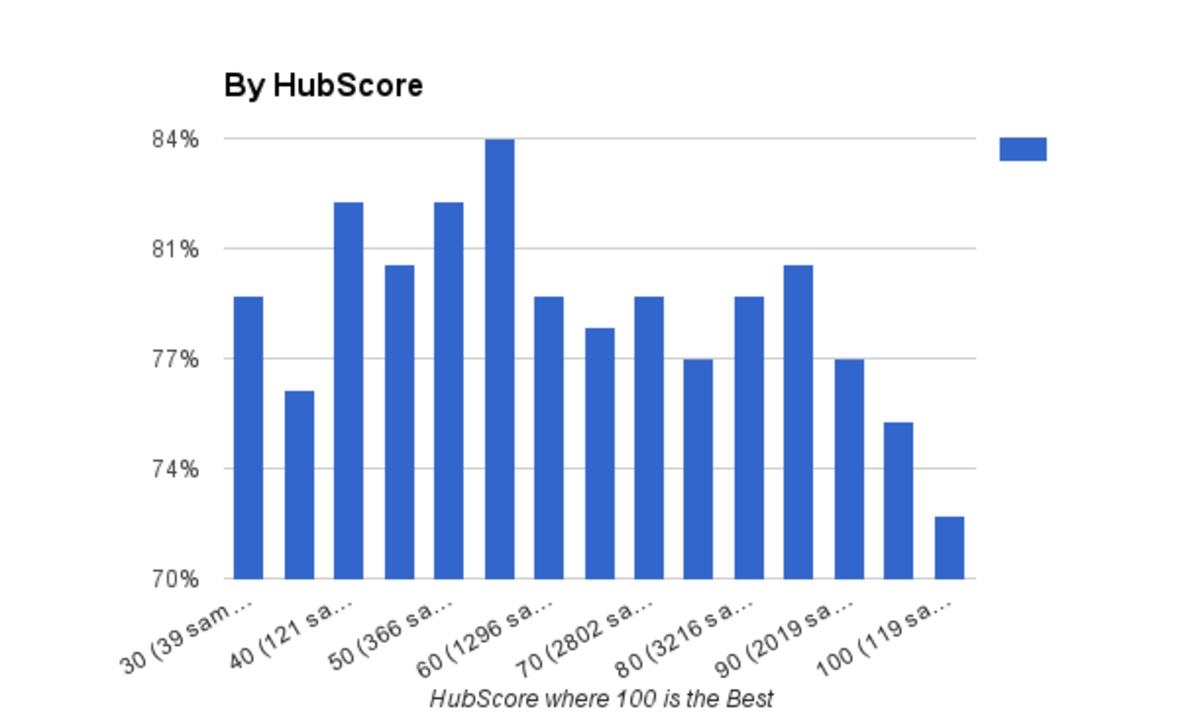Domains & Uniform Resource Locator SEO Tips To Rank On Page One

Get Poised for Domain Optimization To Get That First Page Ranking
Sub domain or domain optimization goes hand in hand with the optimization of your URLs when you are optimizing your websites, blogs, vlogs, or articles for a page ranking on the first page, as domains and sub domains are after all, just a URL.
Hopefully you've read my previous SEO tips on how to optimize and you know all the criteria that the search engine web bot spiders (web crawlers) are looking at when they index and rank your websites, blogs, vlogs, articles, etc., you've already learned how to pick a profitable niche, found all your keywords and have made a list, as it will definitely make the optimization process easier, help you monetize better, and you'll be ready to start thinking of sub domains or domain names for the niches you've picked. If you haven't checked out my previous SEO tips, I suggest you do, as it will be much easier for you to get the search engine rank placement (SERP) and page rank you want if you know all the white hat SEO tactics I've discussed.

Optimization to Get a Ranking On Page One Starts With the Domain & URLs
Your domain name and the URLs to the inner pages of your site should be the first thing optimized when you are trying to improve search engine ranking to a rank on page one. However, you can't really understand how a domain name or URLs have a say in the calculations of your SERP so that you may optimize it to improve search engine ranking, until you understand more then just the definition of URL, sub domains or domains. If you are not sure what a URL or domain is, don’t worry. It is pretty easy to understand once you get past the technical jargon definition of it being a global uniform resource locator.

What is a URL?
A uniform resource locator and domain name are just an address to where your particular article, vlog, or site is located on the hosting server. To put it simply, think of a filing cabinet with all its folders labeled according to what is inside them. The label on the folder is the address for the contents the folder holds, which is just what a domain name and URL is. It is an address, yet it is also a label telling the world what is at the address.

More Then Just The Definition of URL - Understanding The Link & Difference Between the URL & Domains
Before domain names came into play, websites were just a bunch of IP address numbers, (example: HubPages IP address is 66.211.109.13, if you put those numbers in your address bar on your web browser and pressed enter it would bring you to hubpages.com). However people are never going remember sequences of numbers like the example IP address I just gave for all the sites they like so domain names and sub domain names came into play. Their job is to provide a Uniform Resource Locator that points to the IP address of the server the web site is hosted on, and the same goes for sub domains.
A uniform resource locator can be a sub domain or domain pointing to the "home page" of the website, yet it can also be a more specific website address that points to the sites inner pages. Now the difference between a uniform resource locater and a domain name or sub domain is the fact that a sub domain and main domains can only point to the "Home page" of the website where as a URL can point to either a homepage or an inner page on the site.

How Optimizing the Web Site Address to a Blog, Vlog, or Article Can Improve SERP
So how can an address have a say in your SERP and page rank on the search engines? Well it all has to do with relevance, how the address relates to the topic. When your address relates to your topic, your readers will know what to expect and remember the address to get there because of the relation. The same goes for the search engine web crawlers. When the web crawler is indexing your site; they index it according to the topic it relates to most using the address you gave it, as it is programmed to accept that the address contains content related to what the address says. Therefore when you are deciding on your domain names and URLs, to really optimize them you'll need to make sure you are describing the topic your content is based on with the use of a couple keywords related to your topic.
Using key words as part of the name for your web site is considered as an exact match domain (EMD). However Google released an algorithm update back in September 2012 that targets EMDs to try to sandbox those black hat SEO experts who have taken advantage of EMDs and filled them with webspam, so with Google looking even closer at EMDs you'll want to make sure that the EMDs and uniform resource locators you choose for your home page as well as the inner pages of your site provide a proper label to the content the web site contains.

A Uniform Resource Locator That is Optimized is Short & Sweet
Uniform resource locators can be extremely long, especially when they point to an inner page on the hosting server, as the inner page is usually placed in a directory that holds related pages, which can make it harder for your audience or shoppers to remember how to get to that web page if they wanted to return but forgot to bookmark it. However, it's not just the audience and shoppers you want to appease if you want a SERP on the first page of the major search engines. The good news is that the web crawlers are programmed to want what your shoppers or audience wants, and figure that a short and sweet address is not only easier for the shoppers or audience to remember, but it is easier for the top search engines to display it in the search results. Generally the web crawlers prefer your uniform resource locators to be 60 characters or shorter starting after the directory containing the page, so remember to keep them short and sweet to prevent search engine penalties.

Don't Make the Most Common Search Engine Optimization (SEO) Mistakes
Many small businesses or businesses just getting on the Internet may be trying to build a company's brand name and may want to use the company's name as the website address, however this could be an SEO mistake, unless the company is very well known, most likely the brand name alone will not help the company have a first page rank for the products or services they are offering, so if your business is not very well known and you want that first page rank make sure you have a keyword related to your products or services within your website address just as you do for EMDs.
Keywords are great to use as an address, however you don't want to get too greedy with your keyword usage, as the web bot spiders consider the use of too many keywords in the address to your web page as keyword stuffing and will penalize your page's ranking, making greedy keyword usage another common SEO mistake.

SEO Only Just Began so Get Optimized!
Now that you know how optimization to every uniform resource locator is vital to your web site page ranking, and you know how to optimize it I'll let you get on it so that when your finished you can come back and learn how to optimize webpage content and make viral content as when your blog, vlog, article is optimized to go viral it's much easier to improve search engine ranking to that first page rank.
URL Optimization is Important When You Want to Increase Website Traffic & Get on Page 1
Will you optimize a URL?
Copyright © 11/26/12 by Page1 SEO Tactics











